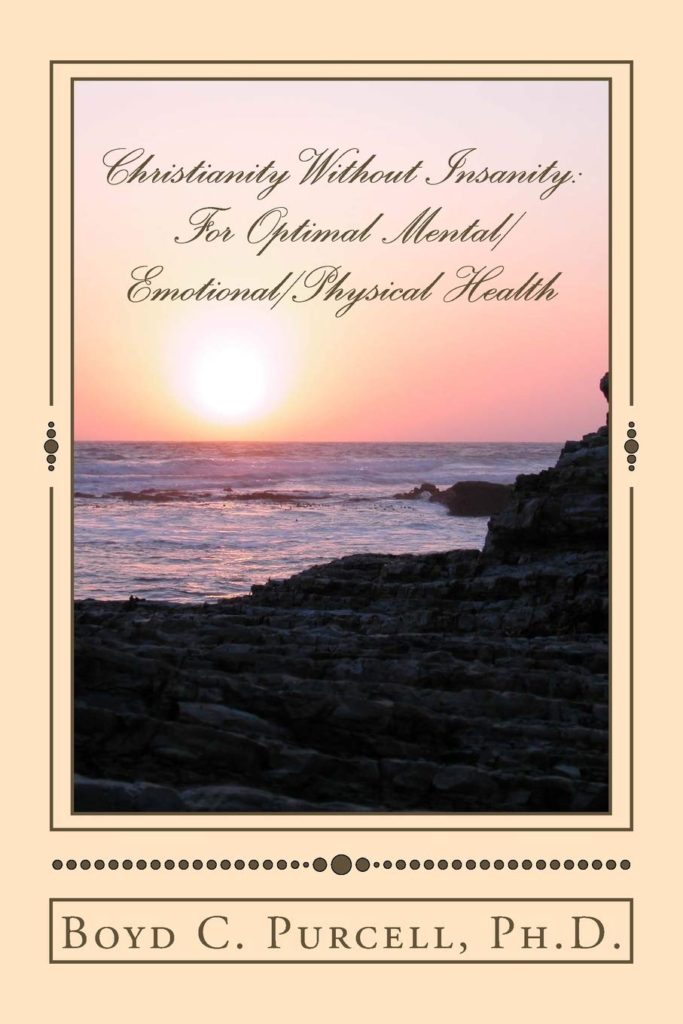
One would think that on a blog site named, “Toward a Sane Faith,” a book entitled, Christianity Without Insanity, would be highly recommended. I wish I could do that … but I can’t. I give the book a 3.5, out of a scale of 1-5. Here’s why.
The book’s entire title is, Christianity Without Insanity: For Optimal Mental/Emotional/Physical Health, by Boyd C. Purchell (Create Space, Charleston, South Carolina 2012). Dr. Purchell is a Presbyterian minister, a Licensed Professional Counselor and a Board Certified Chaplain. The purpose of Purchell’s book is to make the case for Christian Universalism—everyone is saved and no one is going to hell. I agree with Purchell’s argument. Even though hell has been a part of Christian doctrine for millennia even finding its way into the Creeds, I believe that there is a strong case for the truth that the accomplishments of Jesus’ life, death and resurrection was for all people and not only a select few who believe in him. Purchell’s arguments, in his book, to support this are clear, concise and persuasive.
Purchell also points out that Christian universalism changes the message of the Church. The message that has been proclaimed by the Church for hundreds of years has been one of judgment–repent, believe, do good works, or you will be condemned to hell. With only a heaven and no hell, the Church’s message is changed from judgment to love and hope. Amen, preach it brother! I couldn’t agree more. So, why do I give the book such a low rating?
Purchell is a single issue author. By that I mean, if a congregation preaches universalism and love they can have lousy theology and it doesn’t matter. A case in point is Purchell’s praise of televangelist Joel Osteen. Osteen preaches a mushy love, but is more widely known for his “prosperity gospel,” which is diametrically opposed to the teachings of Jesus—and the majority of the Church. Christian universalism is held in such high regard that discipleship and being a follower of Jesus and his teachings becomes an option.
What really dampened my appreciation of this book was Purchell’s constant references to his previous work Spiritual Terrorism. Few pages go by without some comment about Spiritual Terrorism. I was reminded of a couple of college classes that I took where students were required to purchase a book by the professor and the professor constantly referred to himself to back up his points. For me, it got to the point that I felt the book Without Insanity, was an infomercial for the book Spiritual Terrorism. In truth, I must admit that I’ll probably purchase a copy of Spiritual Terrorism simply to read a more detailed and exhaustive argument for Christian universalism.
If you haven’t been exposed to any arguments for Christian universalism, Purchell might not be a bad place to start. Even though I haven’t read Spiritual Terrorism, yet, I might recommend that instead of Without Insanity. With either choice, I highly recommend that you learn more about Christian universalism and the effect that it might have on your life of faith and the message you share.
I received this book free from the author and/or publisher through the Speakeasy blogging book review network. I was not required to write a positive review. The opinions I have expressed are my own. I am disclosing this in accordance with the Federal Trade Commission’s 16 CFR, Part 255.

